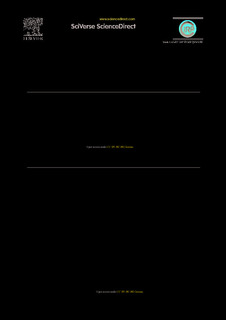Izenburua
Multi revolution finite element model to predict machining induced residual stresses in Inconel 718Egilea (beste erakunde batekoa)
Argitalpen data
2013Beste erakundeak
ITP, S.ABertsioa
Bertsio argitaratuaDokumentu-mota
ArtikuluaArtikuluaHizkuntza
IngelesaEskubideak
© 2013 The AuthorsSarbidea
Sarbide irekiaArgitaratzailearen bertsioa
http://dx.doi.org/10.1016/j.procir.2013.06.074Non argitaratua
Procedia CIRP Vol. 8. Pp. 111–116, 2013Argitaratzailea
ElsevierGako-hitzak
Inconel 718Residual stress
Finite elment method
Turning
Laburpena
Inconel 718 is commonly used in structural critical components of aircraft engines due to its mechanical thermal properties at high temperatures, which makes it to be considered as a difficult to mach ... [+]
Inconel 718 is commonly used in structural critical components of aircraft engines due to its mechanical thermal properties at high temperatures, which makes it to be considered as a difficult to machine material. In these critical parts, such as disk turbines, surface integrity should be assured in order to ensure the expected fatigue life. In order to determine the influence of feed and depth of cut in residual stresses a finite element facing model has been developed. This model takes into account the complex thermo mechanical phenomena that take place during chip formation process as well as the effect of cyclic loading phenomena due to the successive revolutions. Firstly, full stress, strain and temperature fields are obtained with a Deform 3D v10.2 nose turning model. Those fields are introduced in a multi revolution Abaqus/Standard v6.12 machining model. Finally the residual stresses of the model are extracted as an approach of Hole Drilling measurement technique. The results are in good agreement with empirical measurements. [-]
Bildumak
Item honek honako baimen-fitxategi hauek dauzka asoziatuta:






















